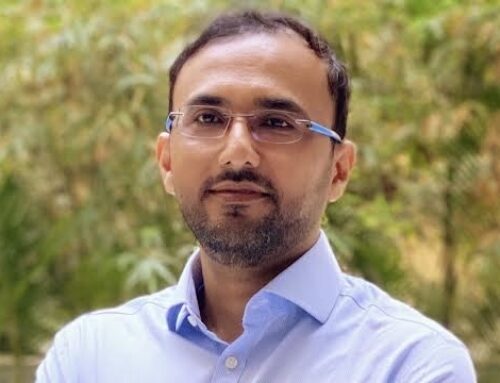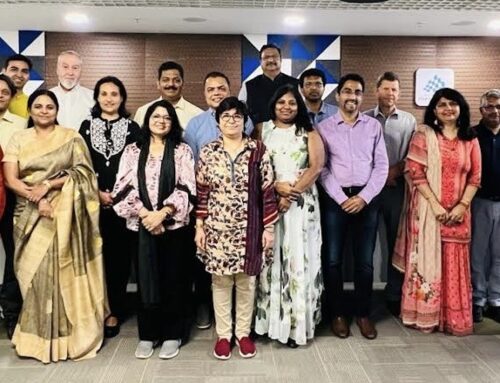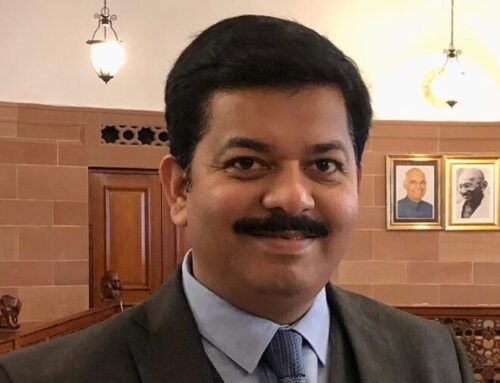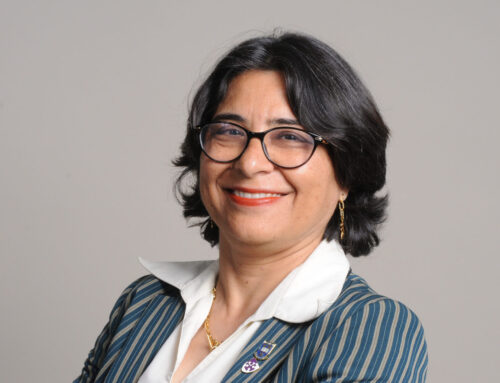John Hoffmire: Tell me about the company you co-founded.
Daisy: I started my career with the Gauhati Stock Exchange after completing my Bachelor’s degree in Statistics and an MBA. After a short stint I started my entrepreneurial journey when I cofounded Integrated Digital Systems along with my husband in 1992. Our company has been at the forefront of geographic information systems (GIS) technology in India for nearly three decades now, with offices in Kolkata and Delhi. We, at IDS, recognized the fact that the application of geographic information systems opens up exciting possibilities in raising management and data analytics technologies to new heights. And, since our inception, it has been our constant endeavor to make people understand what GIS is all about, what it is capable of doing, and what difference this technology can achieve.
John: How is GIS part of the field of data analytics?
Daisy: A geographic information system (GIS) is a framework for gathering, managing, and analyzing data. While it’s rooted in the science of geography, GIS can integrate many types of data. It analyzes spatial location and organizes layers of information into visualizations using maps and 3D scenes. With this unique capability, GIS reveals deeper insights into data, such as patterns, relationships, and situations—helping users make smarter decisions.
John: You spent some time at Oxford as a Chevening (CRISP) Scholar. That’s when I first met you. Tell me about that and whatever else you have been doing since then.
Daisy: I was a scholar at the Chevening Research, Science and Innovation Leadership Fellowship (CRISP) program six years ago. It was affiliated then with the Said Business School at Oxford University. I was part of a wonderful cohort of industry leaders, innovators, scientists and academics from all over India. We spent 12 weeks immersed in learning about science, innovation, leadership, management, and wider issues like global challenges, international relations, and politics. It was an extraordinary experience that contributed to my personal and professional growth.
It was in Oxford, during a conversation with a cohort colleague about investors venturing into the agriculture sector, that I realized our company should explore the role of GIS in agriculture. One thing led to another and soon we launched an agritech venture, Kisan Network, an online platform for farmers to sell their produce. My son, who was pursuing his undergrad studies at Princeton University, joined our team at that stage. Kisan Network was then chosen to be a part of the Y Combinator Winter 2016 cohort in Mountain View, California.
Thereafter, Ochintya Sarma (CRISP 2015) and I set up Oxome Consulting Pvt. Ltd. We both hail from Assam, a state in India’s verdant Northeast. Oxome is a management consulting firm with the aim of enabling business innovation in Northeast India. We offer a bridge to companies across India to engage with the Northeast region.
Currently I am also in the initial stages of setting up a spice/agri products processing unit near Guwahati. You will furthermore be happy to know that our team (Ochintya Sarma, Ananth Aravamudan and I) was selected to receive a grant from the Chevening Alumni Programme Fund (CAPF) 2020. We are working on a project “Effects of Climate Change on Local Livelihoods in Majuli Riverine Island of Assam.”
John: Thank you for catching me up on the interesting work you are doing. I wish you as well as your companies and projects continued success.
Daisy: It was a delight to visit with you again, John. All the best to you.
Daisy Agarwalla is Co-founder and Senior Manager at Integrated Digital Systems, Delhi, India. She is also an alum of the Chevening Research Science and Innovation Leadership Programme (CRISP) at Oxford (2014)
Interviewer: Dr. John Hoffmire is the Chairman of the Center on Business and Poverty, the Director of Employee Ownership at Teamshares, and Research Associate at the Oxford Centre for Mutual and Co-owned Business
Read the entire interview here at the Center on Business and Poverty





